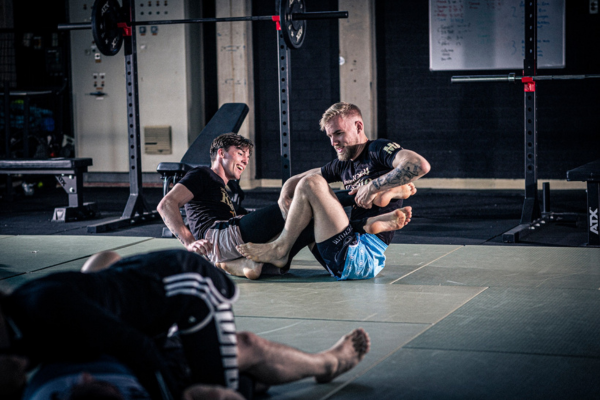The Role of Sleep in Recovery and Performance for Fighters

In the world of combat sports, discipline, strength, and technique are essential. But there is one factor often underestimated, yet it can literally make the difference between winning and losing: sleep. For fighters, sleep is not just a moment of rest; it’s a vital part of recovery, muscle growth, focus, and mental strength. In this blog, you’ll discover why sleep is so important, what happens when you don’t get enough, and how you can use it to your advantage as a fighter.
Sleep as the Invisible Training Partner

Sleep is more than just “taking a break.” It’s a biological recovery mechanism that restores your body and mind to peak condition. During sleep, critical processes take place essential for athletes: muscle repair, hormone regulation, memory consolidation, and mental reset. Deep sleep — also called slow wave sleep — is especially crucial. During this phase, your body undergoes intense recovery and releases growth hormone essential for muscle building.
For fighters, this means: without enough sleep, no optimal recovery. And without proper recovery, you simply can’t perform at a high level consistently. Sleep isn’t a luxury—it’s part of your training.
What Happens When You Don’t Get Enough Sleep?
A few nights of poor sleep might seem harmless, but the impact on your performance can be huge. Less than 6 hours of sleep per night leads to:
-
Slower reaction times
-
Reduced coordination
-
Less muscle recovery
-
Lower testosterone levels
-
Increased risk of injury
-
Negative mood and decreased motivation
Your body becomes unbalanced. Stress hormone cortisol rises while your immune system weakens. Your endurance drops, and your focus fades. In the ring or cage, that means one thing: you’re playing catch-up.
For fighters, it’s all about timing, reflexes, and sharpness. Sleep deprivation costs you seconds, sometimes milliseconds — the difference between a clean hit or a knockout.
Sleep and Mental Strength: The Gamechanger

Besides physical recovery, sleep plays a huge role in mental fitness. A well-rested fighter is more alert, calmer under pressure, and better at strategic thinking. During REM sleep, we process emotions and experiences — vital for building resilience and confidence.
Combat sports are a mental battle. Mental collapse means defeat, regardless of physical preparation. Sleep promotes emotional stability, reduces stress, and boosts motivation. That makes it a secret superpower for any fighter wanting long-term growth.
Practical Tips to Optimize Your Sleep
As a fighter, you want to maximize your rest. Here are some tips to improve your sleep quality:
-
Maintain a consistent sleep schedule, even on weekends
-
Avoid screens one hour before bedtime
-
Create a cool, dark, and quiet sleeping environment
-
Avoid heavy meals late in the evening
-
Don’t consume caffeine after 3 PM
-
Consider magnesium or melatonin supplements under professional guidance
Train hard, but rest smart. Your progress happens not only in the gym but also in bed. Those who take sleep seriously get more out of every training session and every fight.
Fightstyle’s Vision: Rest is Discipline Too
At Fightstyle, we believe real fighters grow in silence. Sleep is a big part of that. It’s not just how much you train, but how well you recover. That’s why we encourage our community to treat sleep as seriously as nutrition, technique, and strength.
Rest is not weakness. It’s the foundation you build on.
Are you ready to recover like a pro? Check out our recovery gear like compression clothing and recovery tools at Fightstyle.nl. Get stronger—even while you sleep. Join the Fightstyle Family.
 Nederlands
Nederlands English
English Deutsch
Deutsch Français
Français


Hoeveel uur slaap raden jullie gemiddeld aan voor iemand die meerdere keren per week traint, maar geen professionele vechter is?
Leave a comment